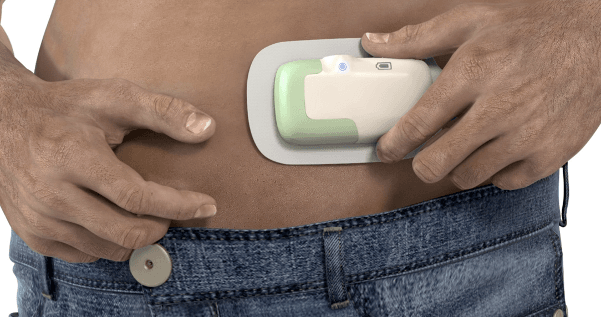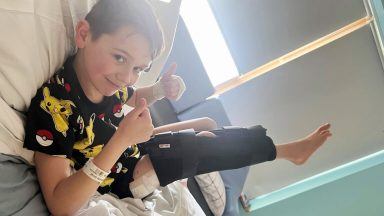A new heart failure device is aiming to revolutionise treatment by allowing patients to receive hospital care from their own home.
The device, fitted with a small needle that delivers a drug under the patient’s skin to help reduce fluid build-up, is being trialled by Glasgow University’s Heart Failure Clinical Trial Team.
It aims to improve the lives of those requiring treatment, as well as helping to reduce the strain on hospital beds by removing the need for patients to spend up to ten days in a ward.
Following a successful initial trial stage at the Queen Elizabeth University Hospital in Glasgow, where NHS patients were the first in the world to be able to use the device and drug in a hospital environment, the treatment is moving into its second stage of trial which will allow patients to use the drug and device in their own homes.
Alex Miller, 64, from King’s Park, was a patient who took part in the first stage of the trial.
He said: “It was painless, after ten or 15 minutes I forgot it was even attached, non-intrusive, whereas previously it would take a lot of time and take up nurses’ times. The gadget did it all for me.
“I lost two stones in weight over six days in hospital which was mostly fluid, which was causing me so much health issues. I couldn’t sleep lying down, I had a drowning sensation.
“The treatment was superb and being able to do that at home would free up hospital beds. I would be 100% behind this to be used widely. If I started to build up fluid again I would happily use the advice at home.
“I can honestly say I thought it was a cracking piece of kit.”
Dr Joanna Osmanska, clinical research fellow at the Institute of Cardiovascular and Medical Sciences, was involved in treating the patients with the new device and drug.
“Our patients were impressed with how straightforward and intuitive the SQIN-pump is,” she said.
“This is a big step forward in our mission to improve life for patients with heart failure.”
Dr Ross Campbell, consultant cardiologist and principal investigator at the Queen Elizabeth University Hospital, where the trial was conducted, said: “This trial has been an excellent example of the type of practice-changing clinical research that is possible within the NHS, in partnership with the University of Glasgow.
“More importantly, this work will allow us to progress to the next phase of the research programme, which will enable us to treat patients with heart failure in their own home.
“This is something that patients want, we have been unable to deliver in the past, and that the NHS needs at this extremely challenging time.”
Follow STV News on WhatsApp
Scan the QR code on your mobile device for all the latest news from around the country



























